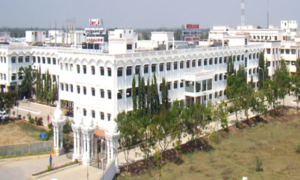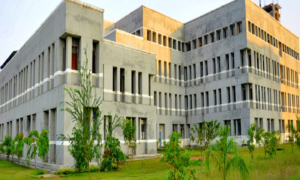REVA University
Intrested
Interested in REVA University, Admissions officers are waiting to hear from you!
Popular Colleges

REVA University
- Overview
- Courses
- Contact
Law degrees in India are granted and conferred in terms of the Advocates Act, 1961, which is a law passed by the Parliament both on the aspect of legal education and also the regulation of the conduct of the legal profession. Under the Act, the Bar Council of India is the supreme regulatory body to regulate the legal profession in India and also ensure compliance with the laws and maintenance of professional standards by the legal profession in the country. Traditionally the degrees that were conferred carried the title of LL.B. (Bachelor of Laws) or B.L. (Bachelor of Law). The eligibility requirement for these degrees was that the applicant already has a Bachelor’s degree in any subject from a recognized institution. Now, universities offer 5-year duration integrated degrees with the title of B.A., LL.B. (Honours), B.B.A, LL.B. (Honours) etc.
India, today produces the largest number of legal professionals in the world. According to reports, about half a million law students pass out from various colleges in India. The Indian legal market is in a nascent stage in terms of growth. A law student with all desired skills and inherent interests has a wide range of legal professional opportunities available these days. One way, lawyers are required in all walks of life.
In this context, an integrated programme in legal studies leading to B.A., LL.B. degree is designed to create legal professionals to meet the human resources requirements of various sectors of society
The programme offers students an opportunity to study law by choosing courses from a repository of related courses.
BACHELOR OF ARTS AND BACHELOR OF LAWS (B.A., LL.B.)
10 Semesters (5 Years)
INR 7.25 Lakh / 5 Years
Address
Intrested
Interested in REVA University, Admissions officers are waiting to hear from you!
Popular Colleges

REVA University
- Overview
- Courses
- Contact
Law degrees in India are granted and conferred in terms of the Advocates Act, 1961, which is a law passed by the Parliament both on the aspect of legal education and also the regulation of the conduct of the legal profession. Under the Act, the Bar Council of India is the supreme regulatory body to regulate the legal profession in India and also ensure compliance with the laws and maintenance of professional standards by the legal profession in the country. Traditionally the degrees that were conferred carried the title of LL.B. (Bachelor of Laws) or B.L. (Bachelor of Law). The eligibility requirement for these degrees was that the applicant already has a Bachelor’s degree in any subject from a recognized institution. Now, universities offer 5-year duration integrated degrees with the title of B.A., LL.B. (Honours), B.B.A, LL.B. (Honours) etc.
India, today produces the largest number of legal professionals in the world. According to reports, about half a million law students pass out from various colleges in India. The Indian legal market is in a nascent stage in terms of growth. A law student with all desired skills and inherent interests has a wide range of legal professional opportunities available these days. One way, lawyers are required in all walks of life.
In this context, an integrated programme in legal studies leading to B.A., LL.B. degree is designed to create legal professionals to meet the human resources requirements of various sectors of society
The programme offers students an opportunity to study law by choosing courses from a repository of related courses.







